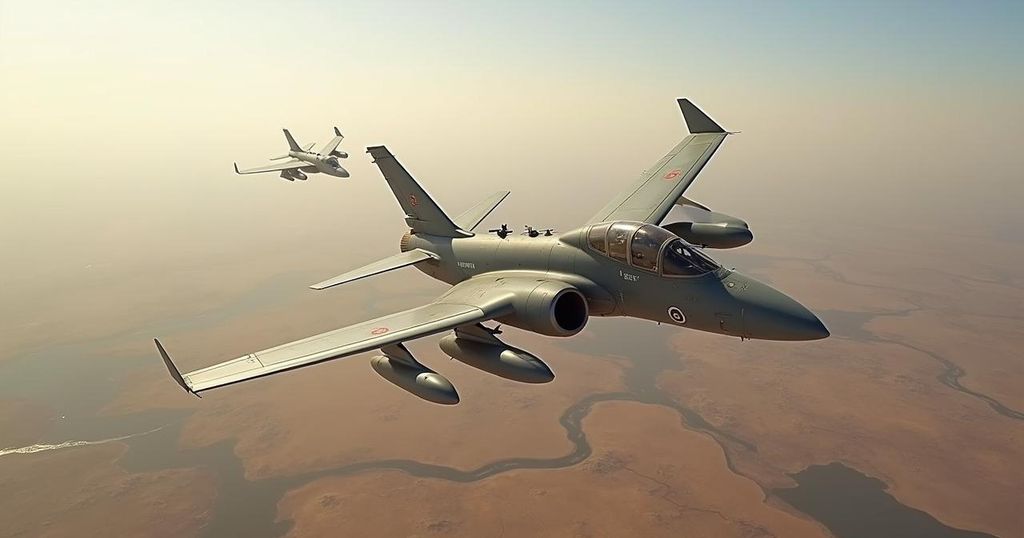Israel’s military has conducted over 220 airstrikes in Syria since October 2022, targeting Iranian-aligned positions. These operations have resulted in significant casualties and minimal international response, highlighting complex issues of sovereignty and regional security dynamics.
Israel has engaged in numerous aerial assaults against targets within Syria, a conflict that has escalated notably over the past year. Recent strikes, including a significant airstrike in Damascus that resulted in 13 fatalities, have been attributed to Israeli offensive military actions, although Israel has neither claimed nor acknowledged responsibility for every incident. Nevertheless, Israeli officials have publicly admitted to conducting hundreds of operations in Syria, primarily aimed at Iranian positions and armed factions affiliated with Iran, From October 2022 to October 2023, Israel executed over 220 attacks on Syrian soil, employing airstrikes and artillery bombardments that have resulted in at least 296 casualties. Many of these operations targeted munitions depots and command centers linked to Iran, highlighting Israel’s focus on eliminating perceived threats. A prominent strike occurred in April 2023 when Israeli fighter jets targeted an Iranian consular building in Damascus, leading to the deaths of several high-ranking members of the Islamic Revolutionary Guard Corps (IRGC). Syria’s response to these incursions has included condemnation of Israeli actions, with some retaliatory rocket fire attributed to Iranian-backed groups. Despite this, the Syrian regime has generally maintained a subdued posture regarding military retaliation. Observably, Israel escalated its targeting operations as broader regional tensions increased, particularly in connection with its ongoing engagements in Lebanon and Gaza. The international reaction to Israel’s military campaigns in Syria has been markedly restrained. While Arab states and the League of Arab States have condemned Israel’s actions, and Russia has characterized them as violations of international law, the overall response has been minimal. Such military interventions underscore a complex paradigm in international relations, where Israel asserts its right to act against Iranian threats in Syria, citing self-defense and regional security, despite clear violations of Syrian sovereignty. The Israeli military’s activities in Syria are not a recent phenomenon; they date back decades, with escalated operations observable since the Syrian civil conflict began in 2011. This ongoing conflict only intensified following the significant regional alterations and escalations since October 7, 2023. In summary, Israel’s military focus in Syria, marked by significant attacks on Iranian-aligned targets and minimal international pushback, illustrates the complexities of regional security dynamics and poses questions about sovereignty and the rules of military engagement.
Israel’s military operations in Syria are deeply rooted in its strategic objectives regarding Iran and Iran-affiliated groups. The Syrian regime, led by Bashar al-Assad, is seen as an ally of Iran and part of a broader coalition perceived as a threat to Israeli national security. The significant uptick in Israeli strikes since the onset of the Syrian civil war in 2011 reflects Israel’s intent to mitigate potential threats from Iranian military entrenchment in Syria. This dynamic has been exacerbated by regional tensions, particularly during escalations involving Gaza and Lebanon, contributing to the perception of legitimacy of these strikes in Israel’s national security strategy.
In conclusion, Israel’s ongoing military actions in Syria reflect its strategic imperative to counter Iranian influence and expel threats stemming from Hezbollah and other allied forces. These operations, characterized by a lack of accountability and minimal international intervention, raise critical questions about the legality and ethical ramifications of such military engagements, as the regional security landscape continues to evolve amidst enduring geopolitical tensions.
Original Source: www.aljazeera.com







